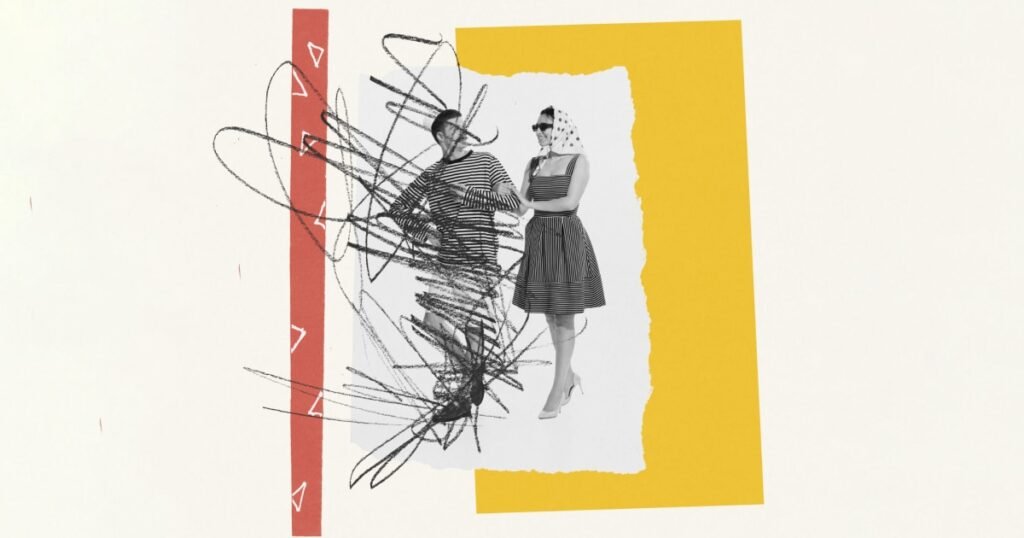
Exploring the Expanding World of Breakup Services
After enduring a string of “dating mishaps,” a 28-year-old woman in the Midwest found herself turning to an online relationship coach during her mid-20s due to her dissatisfaction with love.
“Initially, I was a bit doubtful because I thought, ‘How can you know who you’ll be paired with?” Sarah revealed to NBC News, using a pseudonym to maintain her privacy while discussing such a personal matter.
The platform, named Relationship Hero, connected her with Kyle Scheinkman, a seasoned coach known affectionately to clients as “Coach Kyle.” Therefore, when Sarah decided to end her relationship with a boyfriend in late 2023, she sought out her coach once more.
“I relied heavily on friends, but ultimately, it’s comforting to have an unbiased listener to help you sort through your thoughts. Your friends will always support you, but I needed to hear the truth,” Sarah explained.
And she’s not alone in this journey.
According to Liron Shapira, the founder of Relationship Hero, the app skyrocketed from 100 clients when it first launched as a startup in 2017 to over 100,000 users today. It’s one of many services emerging over the past decade — including breakup dieticians, smartphone applications, and even AI-assisted breakup coaches — with the “breakupcoach” hashtags on TikTok and Instagram accumulating 100,000 posts and millions of views across both platforms.
While precise data on the number of Americans experiencing breakups is lacking, national statistics indicate there are over 670,000 divorces each year, creating ample demand for family law and divorce services estimated to be worth around $13.2 billion.
Additionally, the number of unmarried couples cohabitating has more than doubled from 1990 to 2019, and the number of individuals postponing marriage until their 40s and 50s has quadrupled in the same period — all contributing factors to separations that can be just as emotionally taxing as divorces, but without the legal paperwork.
Amy Chan, founder and “Chief Heart Hacker” of Renew Breakup Bootcamp, has been hosting retreats since 2017 that combine four days and three nights of therapy, counseling, breathwork, and expert advice, designed as a comprehensive health club experience for emotional healing.
“When I launched in 2017, there was nothing like it. When I mentioned the concept of a breakup bootcamp, people reacted with confusion: ‘Why? Can’t they just move on?’ Now people recognize that breakups are serious and deserve attention and care, which has led to the creation of an industry,” Chan shared.
Her bootcamps, priced between $2,000 and $4,000, offer her expertise as a self-help author and relationship coach, alongside a diverse lineup of specialists, including psychologists, therapeutic movement experts, executive coaches, and even a dominatrix who provides insights on “navigating power dynamics” in relationships — all during an intense 12-hour day.
While Chan acknowledges that time can naturally diminish the emotional sting of a breakup, she characterizes her bootcamp as more of a space for attendees to contemplate the changes they can implement in their lives, rather than a quick fix for heartbreak.
There are two key rules during the bootcamp: No trauma-bonding (which means don’t date other participants) and no vilifying former partners.
“We employ scientifically-supported methods to equip individuals with tools that reveal their patterns, as it’s seldom solely about the ex. There’s often repeated pain,” Chan stated. “We aim to assist people in healing and processing their heartbreak. The question is whether they will be able to break their patterns to foster healthier future relationships.”
Paul Eastwick, a psychology professor at the University of California, Davis, and co-host of The Love Factually Podcast, acknowledges that there can be value in these services but warns against relying solely on a single approach.
“A significant part of recovering from a breakup involves creating meaning and formulating a narrative about the breakup,” Eastwick advised. “I would be cautious of anyone suggesting a dramatic shortcut for this process, as it genuinely takes time to discern what aspects of your identity tied to that previous couple you want to keep, and what you wish to release.”
He recommends a three-part approach for those on the path to recovery following a breakup: Seek support from caring individuals, cultivate a coherent understanding of why the breakup occurred, and eventually, move on to establish a new, healthy relationship.
For Chelsea Burka, who concluded a significant relationship in 2019, this advice proved effective. Five years post-attending Renew Breakup Bootcamp, she describes being in a fulfilling and joyful relationship with a new partner. She attributes this to the insights she gained at the bootcamp and the personal transformations she undertook over time.
“The strength of these environments lies in enabling you to step back from feeling like a victim of your circumstances, to take accountability and introspection, and ask, ‘How am I contributing to what isn’t working in my life?’ By promoting this awareness, you can begin to rewire and shift those patterns, though it requires time,” Burka said.
Her message to others grappling with heartbreak, regardless of the type of comfort they seek: “Things genuinely improve, especially when you are willing to invest the effort.”



